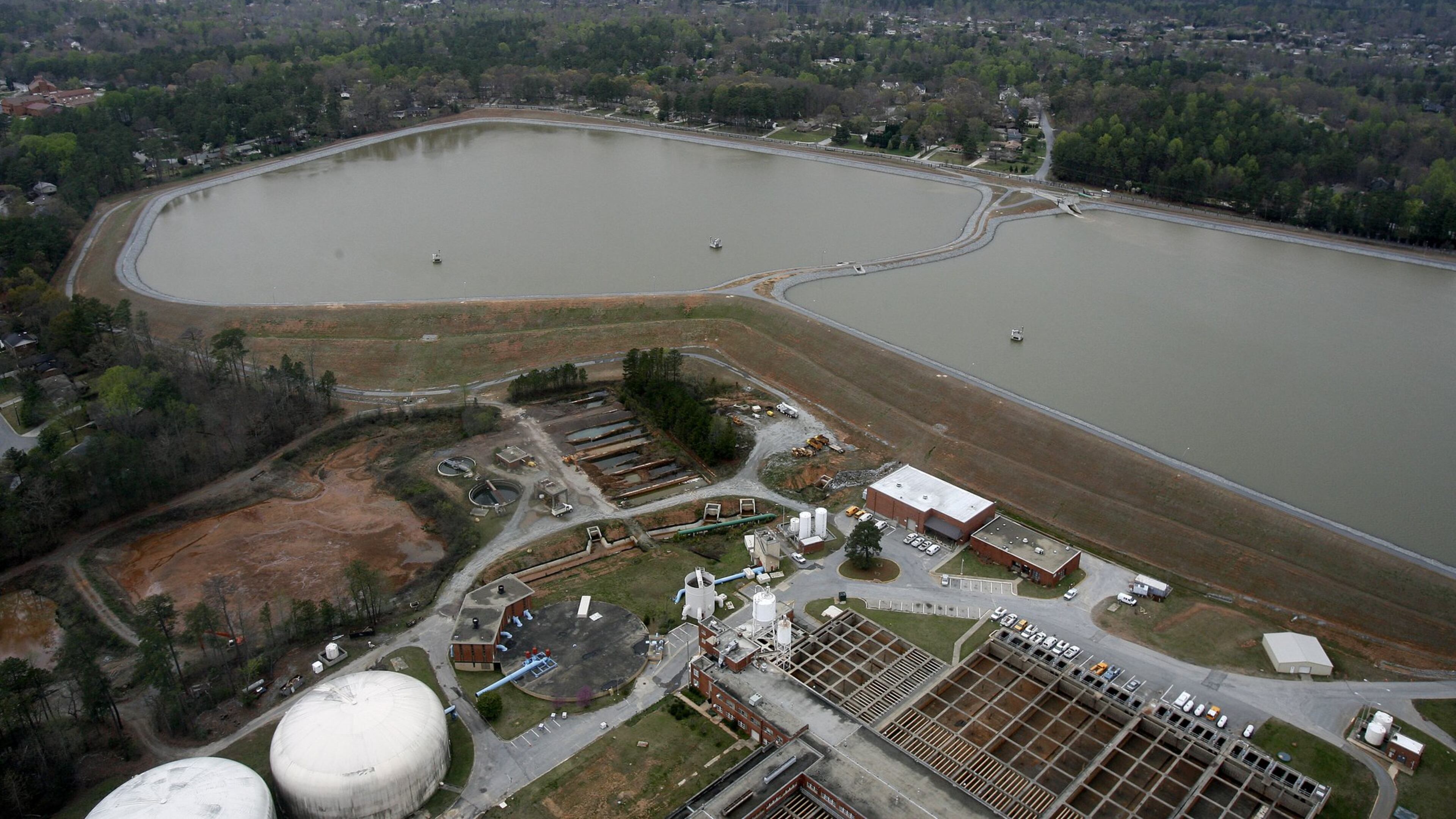Extraordinary measures used to protect Metro Atlanta’s water workers

If the coronavirus spread among workers at DeKalb County’s Scott Candler Water Treatment Plant, things could quickly turn dire.
It takes manpower to keep water treatment plants running, and without those employees DeKalb’s 760,000 residents could find themselves without enough clean water — for drinking or hand washing.
But like those from other jurisdictions across metro Atlanta, DeKalb leaders say they’re taking extraordinary precautions to protect workers and ensure that their most crucial service is delivered without interruption during the pandemic.
“The queen is the most powerful piece on the chess board,” DeKalb CEO Michael Thurmond said. “And the Scott Candler plant is the queen.”
To be clear, there is currently no evidence to suggest that the coronavirus and the disease it causes, COVID-19, could contaminate water supplies itself. The Centers for Disease Control and Prevention has found no sign of the virus in drinking water and says that "conventional water treatment methods that use filtration and disinfection, such as those in most municipal drinking water systems, should remove or inactivate the virus that causes COVID-19."
But coronavirus outbreaks among workers at facilities that treat or distribute water could disrupt the service.
Thurmond referenced a situation that took place at a wastewater treatment plant in San Jose, California, where a janitorial worker tested positive for COVID-19 and 17 other employees had to self-quarantine. The incident left the plant operating at about 70% staffing and forced officials to seek outside help and lure retirees back to work.
With that scenario in mind, DeKalb County was among the first in metro Atlanta to put emergency protocols in place at its water and wastewater treatment plants. Many others have done the same.
At DeKalb’s Scott Candler plant, which turns water from the Chattahoochee River into potable drinking water, physical distancing is now closely monitored.
Employees no longer rotate through workspaces during their shifts. “Touchpoints” like door handles and time clocks are cleaned multiple times a day. Employees sanitize their work stations before leaving, and those arriving for work immediately do the same.
Employees are also currently on a “block schedule,” rotating between one week on duty and one week on “reserve” at home to limit the contact and potential exposure between different groups.
Retirees have also been lined up, should they be needed to jump back into the workforce.
Similar measures are in place across metro Atlanta.
Glenn Page is the general manager of the Cobb County-Marietta Water Authority, which provides drinking water to those communities. He said the authority is also limiting on-site staff and has stopped rotating workers among workstations.
Employees reporting to work answer a questionnaire about potential symptoms and exposure to COVID-19; if they answer yes to any of the three questions, their temperature is taken on the spot.
The authority is also rotating teams, one week on and one week in reserve.
“We have maintained the perspective that a person that is healthy and held in reserve is as important as a person on the job,” Page said.
In Gwinnett County, operators and staff practice distancing, wear protective equipment and sanitize their work areas frequently. Plant operators work their shifts with only one set team.
“Should the outbreak continue to worsen, we are fully prepared to shelter operators in place at the plants,” Gwinnett officials said in an email.
Thurmond said DeKalb is ready to do the same at its Scott Candler plant, if necessary.
They’ve even acquired cots and MREs — “meals, ready to eat,” in military parlance — to accommodate workers should they have to be sequestered on-site.
“It’s a unique skill set,” Thurmond said. “And you can’t just walk down the street and get somebody that’s experienced working at a water treatment plant.”



